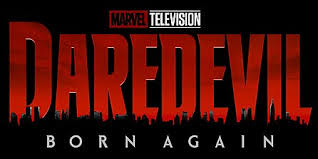Let's face it. Life can be hard. It's full of trials and tribulations (e.g., getting laid off from work, your kid having health issues, the elected leader of your country jacking up tariffs with your nation's largest trade partners and driving the economy off a cliff, etc.) that can place a lot of pressure on individuals and families.
To help relieve that stress, many of us go all in supporting our favorite professional sports teams. If you live in London, you might be a rabid fan of Manchester United. If you call Toronto home, you probably live and breathe for the Maple Leafs. And if you reside in New York City, odds are you're a Yankees fan (I'm sure your mom still loves you).
As such, many of us live and die on the success and failures of our favorite teams. Like Obi-Wan described The Force to Luke, "It surrounds us and penetrates us; it binds the galaxy together." In a similar notion, our shared passion for a team can help unify a community.
Here in Dallas where I live, I can tell you the recent World Series championship by our beloved Texas Rangers was a beautiful thing to behold. Many of us in North Texas suffered for half a century to see the Rangers hoist that trophy. Still brings a tear to my eye thinking about it. While the Rangers didn't repeat as champions last year, spring training is underway, and Vegas has the odds of the Rangers winning again pretty high -- second only to the Dodgers.
In the meantime, both the NBA and the NHL are underway with the playoffs looking to commence soon. However, the odds of our Dallas teams winning their respective championships are vastly different.
Why? That's easy.
One team has a manager that knows what he is doing. The other does not.
How Poor Management Can Cripple Organizational Value: A Tale of Two Dallas Teams
In the competitive landscape of professional sports, management decisions directly impact organizational value. Right now, this is clearly on display in the City of Dallas with a stark contrast between two franchises: the Dallas Stars of the NHL and the Dallas Mavericks of the NBA. Specifically, Jim Nill of the Stars and Nico Harrison of the Mavericks represent opposite ends of the management effectiveness spectrum.
The Impact of Poor Management
Now there is a real good chance that the vast majority of you reading this newsletter (thanks by the way, it means a lot) never played professional sports. However, I bet all of you have worked at organizations with good management and at other organizations with bad management. I know I have. As such, we have all witnessed first-hand how poor management undermines organizational value through:
Strategic misalignment - Lack of clear direction leads to wasted resources and diminished morale
Talent mismanagement - Failing to properly value and retain key personnel
Short-term thinking - Sacrificing sustainable success for immediate gains
Cultural deterioration - Eroding trust between the organization and stakeholders
Jim Nill and the Dallas Stars: Strategic Brilliance and Value Creation
Jim Nill assumed the role of General Manager for the Dallas Stars in April 2013, inheriting a team that had missed the playoffs for five consecutive seasons. His approach to rebuilding the organization offers valuable insights into effective management principles, with his recent acquisition of Mikko Rantanen representing perhaps his most ambitious and strategic move yet.
Long-Term Vision with Tactical Flexibility
Nill established a clear long-term vision for the Stars while maintaining the tactical flexibility to adapt to changing circumstances. Rather than seeking quick fixes, he focused on building sustainable competitive advantages through strategic player development and carefully considered acquisitions. The Stars' strategic patience under Nill paid dividends with Western Conference Final appearances in 2020 and 2023, followed by a Stanley Cup Final appearance in 2024.
The Rantanen Acquisition: A Masterclass in Strategic Opportunism
Nill's recent acquisition of elite forward Mikko Rantanen from the Colorado Avalanche demonstrates his ability to identify and capitalize on unique market opportunities. By leveraging organizational assets at precisely the right moment, Nill secured a premier talent who perfectly complements the Stars' existing core. This move addresses specific team needs while maintaining long-term flexibility and reinforces the Stars' position as legitimate Stanley Cup contenders. In fact, once the trade was announced the Stars became the odds-on favorite in Vegas to win the Stanley Cup.
Recognizing the optimal timing to make a significant move
Accurately assessing both current and future value
Understanding how a specific talent fits within the broader organizational structure
Preserving sufficient assets to allow for future flexibility
Taking calculated risks that align with strategic objectives
Asset Management and Value Creation
One of Nill's strengths has been his ability to maximize the value of organizational assets. He's demonstrated skill in:
Drafting effectively (selecting players like Miro Heiskanen and Jason Robertson)
Making calculated trades (like Mikko Rantanen)
Managing the salary cap prudently to maintain financial flexibility
These decisions have collectively enhanced the Stars' competitive position while preserving financial health, creating a virtuous cycle of organizational value growth.
Nico Harrison and the Dallas Mavericks: A Catastrophic Management Failure
In contrast, Nico Harrison became General Manager of the Dallas Mavericks in June 2021, taking over a franchise with one of the most promising young superstars in NBA history. His tenure will now be defined by what many analysts consider the most catastrophic management decision in modern sports history: trading away Luka Dončić, a generational talent widely regarded as the face of the franchise and one of the premier players in the NBA.
The Dončić Disaster: Unprecedented Value Destruction
The decision to trade Dončić represents a case study in catastrophic talent evaluation and organizational malpractice. Dončić, at just 25 years old, was already:
A multiple-time All-NBA First Team selection
An MVP candidate
The cornerstone of the Mavericks' 2024 NBA Finals appearance
On pace to become one of the greatest players in NBA history
The franchise's most marketable and popular player since Dirk Nowitzki
By trading away Dončić, Harrison destroyed immeasurable organizational value across multiple dimensions:
Competitive standing (from contenders to rebuilding)
Financial outlook (ticket sales, merchandise, broadcast value)
Brand equity (appeal to future free agents)
Fan trust (severing emotional connections)
Unprecedented Unpopularity
Harrison has achieved what once seemed impossible: becoming more unpopular among Dallas sports fans than Jerry Jones, the controversial Cowboys owner. Despite Jones' decades of criticism, Harrison's disastrous decision-making has established a new benchmark for executive disapproval in one of America's most passionate sports markets.
Tone-Deaf Leadership
The Mavericks failed to recognize Dončić's cultural significance as a civic icon who transcended basketball. Management treated him as merely an asset rather than a cultural cornerstone, revealing a dangerous detachment from the emotional foundation that sustains franchise value.
Crisis Mismanagement
Since the trade, the organization has compounded the damage through self-destructive policies:
Banning fans from wearing Dončić jerseys
Prohibiting signs or banners critical of management
Ejecting vocal fans expressing disapproval
Restricting media access to limit public discussion
These heavy-handed censorship attempts reflect a fundamental misunderstanding of modern sports fandom, treating loyal customers as adversaries rather than stakeholders. This is the kind of thin-skinned weakness you would expect in places like China, Russia, Iran, and North Korea -- not in Dallas.
Leadership Lessons
While unfortunately the good citizens of North Texas have to see these different management styles in real life, these contrasting approaches offer valuable lessons for leaders across industries:
Talent is the cornerstone of value creation - Identifying, developing, and retaining exceptional talent is perhaps the most crucial responsibility of leadership.
Strategic coherence matters - Decisions must align with organizational vision rather than representing isolated choices.
Public perception can collapse rapidly - Decades of goodwill can be erased by a single catastrophic decision. Want proof? There are many of us here in Dallas going out of our way to watch Luka and the Lakers, me included.
Organizations are community institutions - In public-facing industries, leadership must recognize that organizational value is intertwined with community relationships.
Crisis management requires empathy - Suppression strategies invariably backfire; acknowledging legitimate concerns is essential. This is a big reason autocratic regimes like the Soviet Union and Assad's Syria officially collapsed. Sooner or later, the people are going to say enough is enough.
Time Will Tell
The contrasting decisions of Nill and Harrison will define both their legacies and their organizations' trajectories. While Nill's Stars continue their ascent as a model franchise with championship aspirations, Harrison's Mavericks face a prolonged rebuilding period and the monumental challenge of regaining relevance after trading away their generational superstar.
Let me close with my personal example. I own a Jamie Benn jersey, and I wear it with pride when I attend Stars games. I will also wear it during the playoffs even when I'm watching the games from home.
I don't own any Mavericks gear.
Et, al...
Review: Daredevil: Born Again
Like many of your out there, I’m a fan of the Marvel Cinematic Universe (MCU). So, I was pleased when Disney+ released a new show as part of the MCU. "Daredevil: Born Again" follows Matt Murdock, a blind lawyer with heightened abilities who fights for justice as Daredevil. The show features the return of Charlie Cox as Murdock and Vincent D'Onofrio as Wilson Fisk, also known as Kingpin. The series delves into their complex relationship as Fisk pursues political power as he becomes the newly-elected Mayor of New York City, while Murdock battles to protect his city.
With intense action, emotional depth, and a stellar cast, "Daredevil: Born Again" continues the legacy of the original Netflix series, offering fans a thrilling and engaging experience. So far, Disney has dropped three episodes, and I have enjoyed each one. This is in fact the 4th season focused on Daredevil (and I'm not counting The Defenders), and as such this character has seen a lot. So don't expect a lot of Daredevil kicking bad guy ass in the first three episodes. He's working through some issues, and I'll leave it at that.
If you are not a Marvel fan, you may not enjoy this show and could feel a bit lost. However, if you like the MCU I’m sure you will feel right at home.
If you enjoy what you've read here and you think I might have a clue what I'm talking about, then please reach out to me if you would like me to present to your firm or organization. I have experience talking to professional organizations, trade conferences, as well as universities. I've also appeared in newspaper articles and podcasts. Also, I'm available for birthdays and bar mitzvahs.




